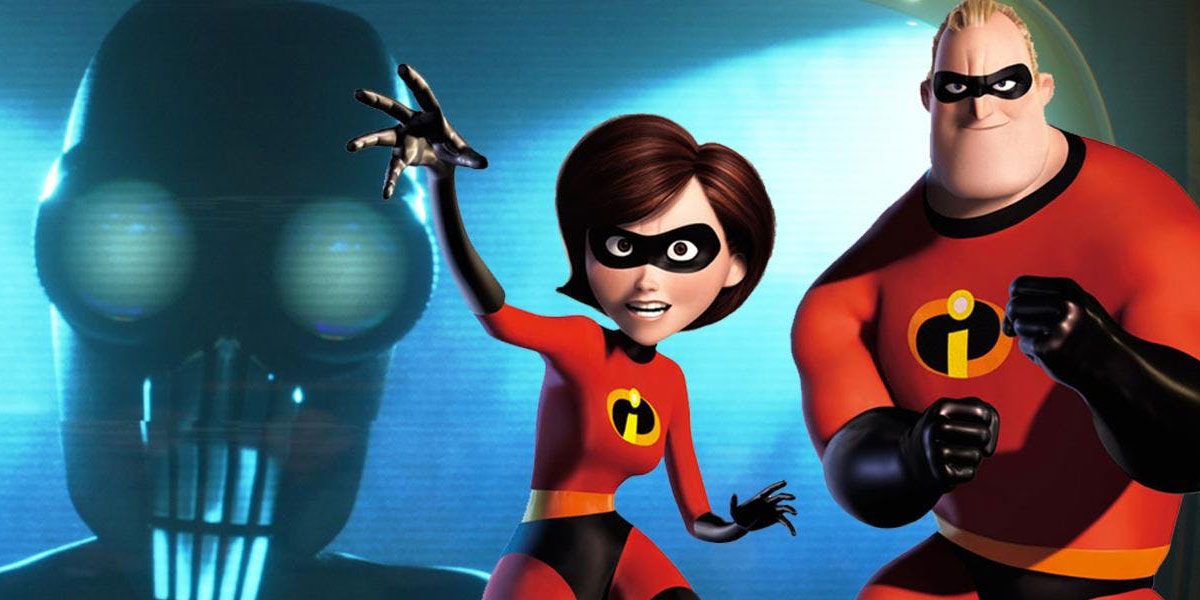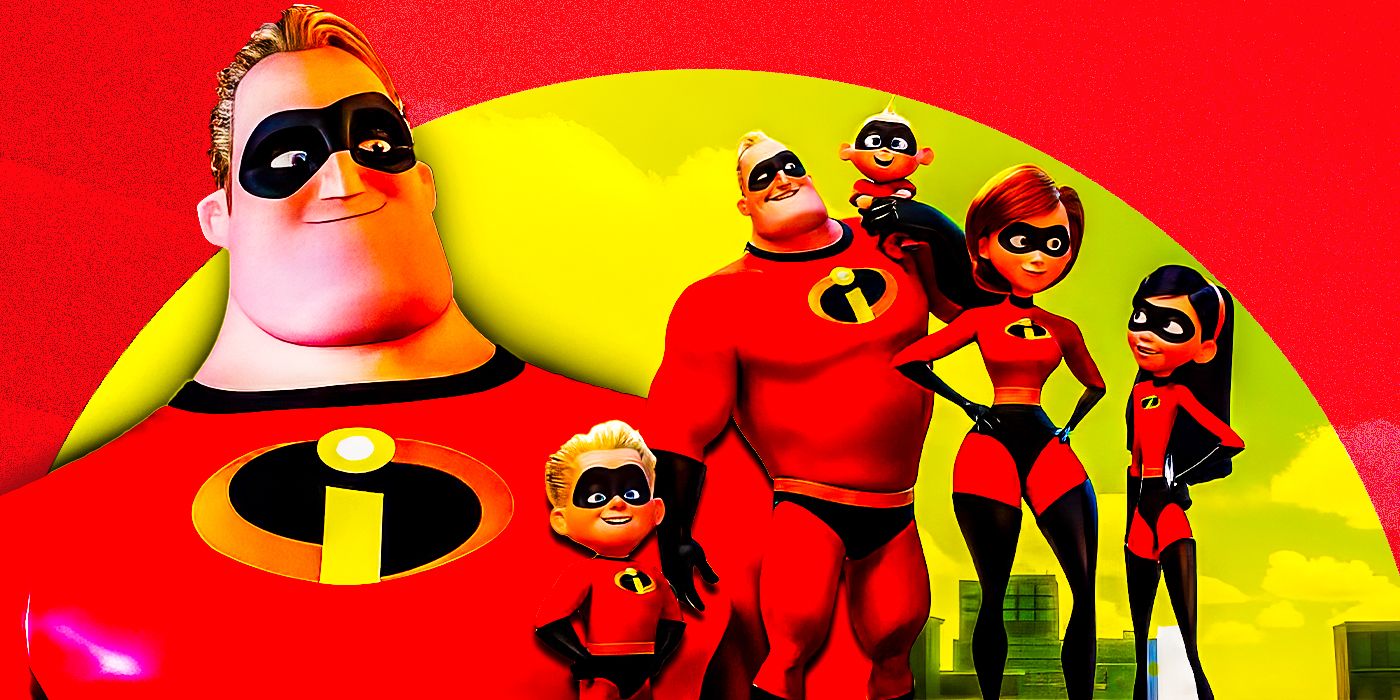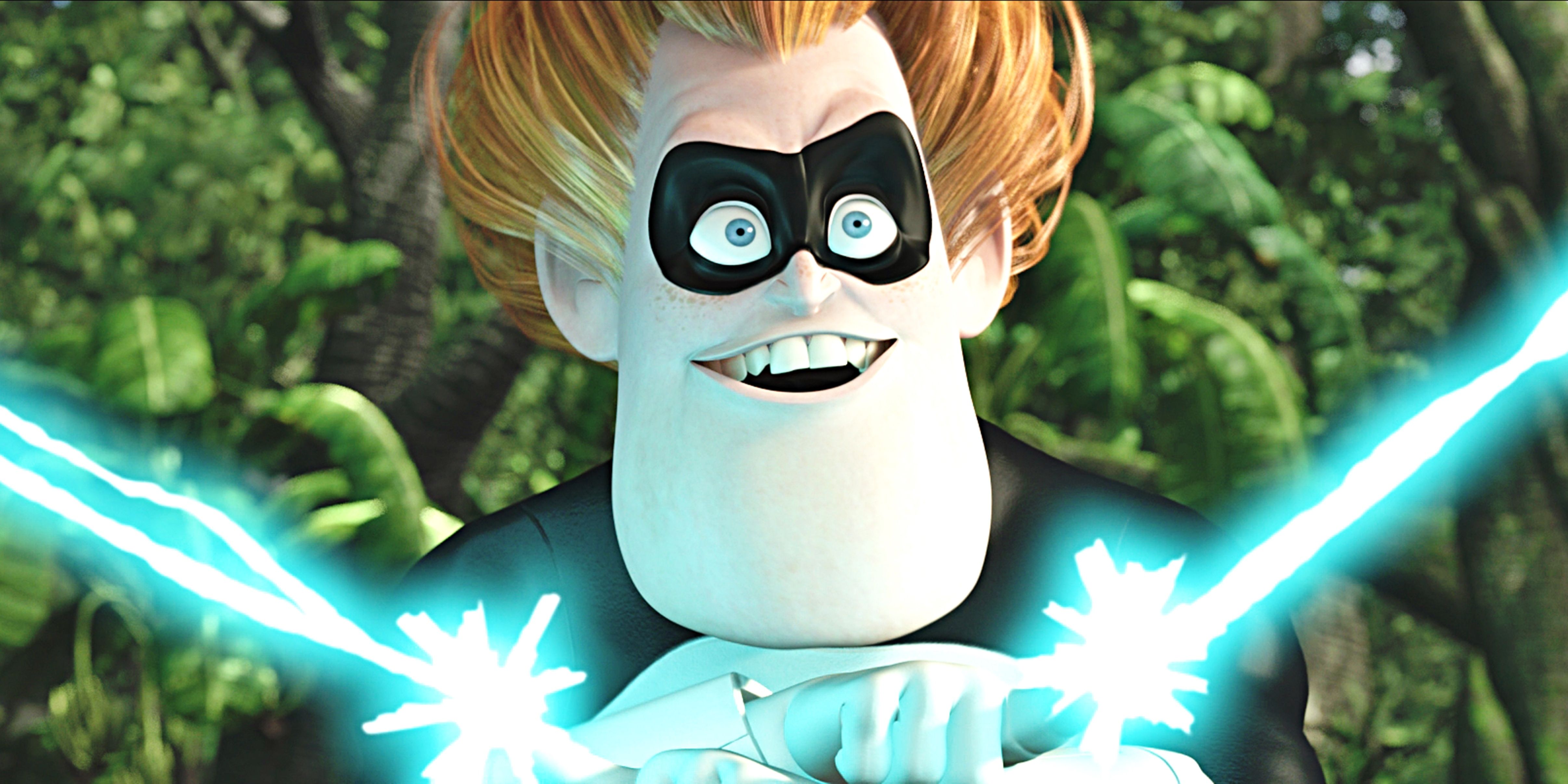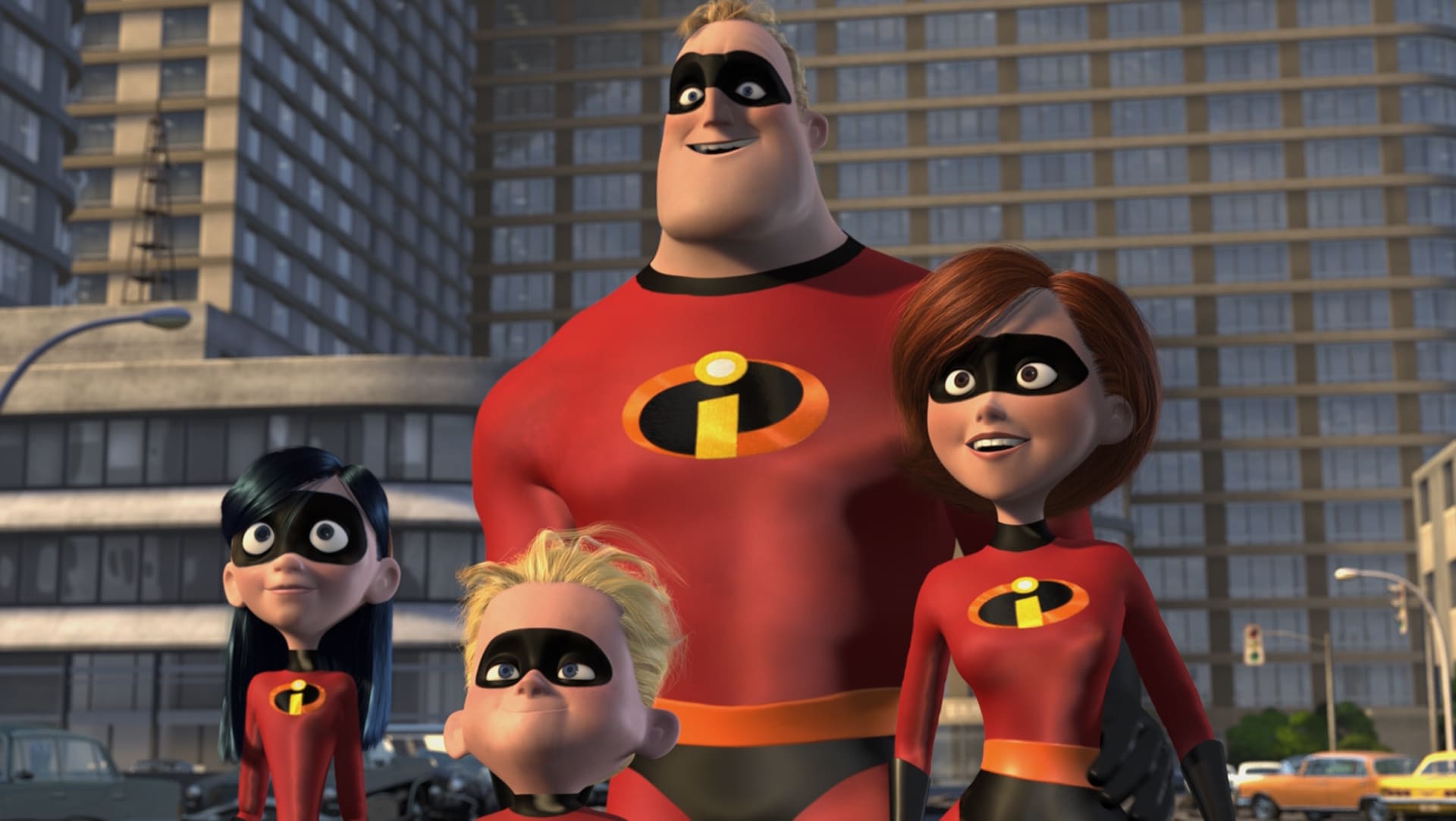When it comes to superhero movies, villains play just as crucial a role as the heroes themselves. In "The Incredibles," we're treated to an incredible lineup of characters, but none are more intriguing than the movie's main antagonist. The Incredibles villain is not just a mere obstacle; they represent something far deeper and more complex. Whether it's Syndrome's ambition or another hidden force, this article will take you on a journey through their motivations, backstory, and impact on the story.
Picture this: a world where superpowers are both a blessing and a curse. That's the foundation of "The Incredibles." While Mr. Incredible, Elastigirl, and the rest of the family are the stars of the show, the villain's role is what truly drives the narrative forward. Without them, there'd be no tension, no stakes, and no real reason for our heroes to rise to the occasion.
This article isn't just about naming names or summarizing the plot. We're going to dive deep into the psyche of The Incredibles villain, exploring their motivations, the societal commentary they bring to the table, and how their presence shapes the movie's overarching themes. So buckle up, because we're about to uncover some seriously cool stuff!
Read also:Sean Mcvay Exwife The Untold Story Behind The Headlines
Table of Contents
- Biography of the Villain
- Syndrome: The Incredibles Villain
- What Drives the Villain?
- The Impact of the Villain on the Story
- Societal Commentary Through the Villain
- Comparing The Incredibles Villain to Other Antagonists
- Psychology Behind the Villain
- The Evolution of Villains in Pixar Movies
- Fan Theories About the Villain
- Conclusion
Biography of the Villain
Before we dive headfirst into the nitty-gritty, let's get to know our main antagonist better. Here's a quick rundown of the villain's life, presented in a table for easy reference:
| Name | Buddy Pine (later known as Syndrome) |
|---|---|
| Alias | Syndrome |
| Occupation | Self-proclaimed superhero turned supervillain |
| Superpower | No natural superpowers; relies on advanced technology |
| Motivation | To become a hero by eliminating "real" superheroes |
| First Appearance | "The Incredibles" (2004) |
Buddy Pine, or Syndrome as he's better known, isn't your typical bad guy. His journey from a wannabe sidekick to a full-blown supervillain is one of the most compelling arcs in the movie. It's not just about power or destruction; it's about proving a point and challenging the status quo.
Syndrome: The Incredibles Villain
Let's talk about Syndrome. He's not just any villain; he's a guy with a serious grudge. You see, back in the day, Buddy Pine idolized Mr. Incredible. He wanted nothing more than to be his sidekick, but Mr. Incredible shot him down, calling him a "fanboy." That rejection left a mark, and Buddy spent years nurturing that anger, turning it into something far more dangerous.
Fast forward to the present, and Buddy has reinvented himself as Syndrome. Armed with cutting-edge technology and a chip on his shoulder, he sets out to prove that anyone can be a superhero—with the right tools, of course. His ultimate goal? To eliminate "natural" superheroes like Mr. Incredible and replace them with tech-driven ones.
What Drives the Villain?
So, what exactly motivates Syndrome? Is it revenge? Ambition? Or something else entirely? Turns out, it's a mix of all three. Syndrome's motivations can be broken down into a few key points:
- Revenge: Buddy Pine never forgave Mr. Incredible for dismissing him as a mere fan. This personal vendetta fuels his actions throughout the movie.
- Ambition: Syndrome wants to be a hero, but he doesn't believe in natural superpowers. Instead, he thinks technology can level the playing field.
- Philosophy: He believes that anyone can be a superhero if given the right tools, challenging the idea that superpowers are inherently special.
It's this mix of personal and philosophical motivations that makes Syndrome such a fascinating character. He's not just a bad guy for the sake of being bad; he's a reflection of society's obsession with technology and the desire for greatness.
Read also:Tyrus A Comprehensive Guide To The Rising Star In The Entertainment World
The Impact of the Villain on the Story
Syndrome's presence in "The Incredibles" is felt from the very beginning. Without him, there'd be no conflict, no tension, and no reason for the Parr family to reunite. His actions drive the plot forward, forcing the heroes to confront their own limitations and work together as a team.
But it's not just about the plot. Syndrome's impact extends beyond the surface level. He challenges the very notion of heroism, forcing the audience to question what it truly means to be a hero. Is it about innate ability, or is it about the choices we make? These are the kinds of questions that make "The Incredibles" such a timeless classic.
Societal Commentary Through the Villain
One of the most interesting aspects of Syndrome is the societal commentary he brings to the table. In a world where technology is advancing at breakneck speed, Syndrome represents the idea that anyone can achieve greatness with the right tools. This is both a critique and a celebration of modern society.
On one hand, Syndrome's reliance on technology can be seen as a warning against over-reliance on gadgets and gizmos. On the other hand, it's also a nod to the democratization of power. In the real world, technology has given ordinary people extraordinary capabilities, and Syndrome embodies that shift in a way that's both thrilling and terrifying.
Comparing The Incredibles Villain to Other Antagonists
How does Syndrome stack up against other villains in the superhero genre? Let's take a look:
- Lex Luthor (Superman): Both Syndrome and Lex Luthor are smart, tech-savvy villains who use their intellect to outwit their opponents. However, while Lex's motivations are often tied to world domination, Syndrome's are more personal.
- Thanos (Avengers): Like Thanos, Syndrome believes in a certain kind of balance—his version involves eliminating "natural" superheroes. However, Thanos' methods are far more extreme, involving the destruction of half the universe.
- Dr. Doom (Fantastic Four): Both villains have a flair for the dramatic, but Dr. Doom's motivations are rooted in a desire for power, whereas Syndrome's are tied to a sense of injustice.
Each of these villains brings something unique to the table, but Syndrome's personal connection to the heroes sets him apart. His story isn't just about good vs. evil; it's about redemption, ambition, and the blurred lines between hero and villain.
Psychology Behind the Villain
Let's get psychological for a moment. What makes Syndrome tick? It's not just about revenge or ambition; it's about identity. Buddy Pine's transformation into Syndrome is a journey of self-discovery, albeit a twisted one. He's trying to prove that he doesn't need superpowers to be extraordinary.
From a psychological standpoint, Syndrome exhibits traits of someone with an inferiority complex. He feels overshadowed by the "real" superheroes and uses his tech as a way to compensate. But it's not just about feeling inferior; it's also about control. Syndrome wants to control the narrative, to be the one who defines what it means to be a hero.
The Evolution of Villains in Pixar Movies
Pixar has always been known for its complex characters, and its villains are no exception. From Hopper in "A Bug's Life" to Ernest in "Lightyear," Pixar's antagonists are more than just bad guys; they're reflections of deeper themes and ideas.
Syndrome fits right into this tradition. He's not just a one-dimensional villain; he's a character with depth and complexity. His evolution from Buddy Pine to Syndrome mirrors the evolution of Pixar's storytelling, which has always been about exploring the human condition in all its messy glory.
Fan Theories About the Villain
No discussion about "The Incredibles" would be complete without mentioning fan theories. Over the years, fans have come up with some pretty wild ideas about Syndrome and his motivations. Here are a few of the most interesting ones:
- The "Syndrome Was Once a Hero" Theory: Some fans believe that Syndrome was once a hero who went rogue after being betrayed by the superhero community.
- The "Tech Too Far" Theory: This theory suggests that Syndrome's reliance on technology is a metaphor for humanity's growing dependence on AI and automation.
- The "Buddy Pine Was Always Doomed" Theory: According to this theory, Buddy Pine was destined to become a villain from the moment he was rejected by Mr. Incredible.
These theories add layers of depth to Syndrome's character, making him even more fascinating to fans of the movie.
Conclusion
So there you have it, folks. The Incredibles villain is more than just a bad guy; they're a complex character with motivations, flaws, and a story that resonates on multiple levels. Whether you're a fan of superhero movies or just someone who appreciates a good villain, Syndrome is a character worth exploring.
As we've seen, Syndrome's impact extends beyond the movie itself. He challenges our ideas about heroism, technology, and the human condition, making "The Incredibles" a movie that's as relevant today as it was when it first hit theaters.
So what do you think? Are you team Syndrome, or do you side with the Parr family? Let us know in the comments below, and don't forget to share this article with your friends. Until next time, keep exploring the world of superheroes—and villains!



